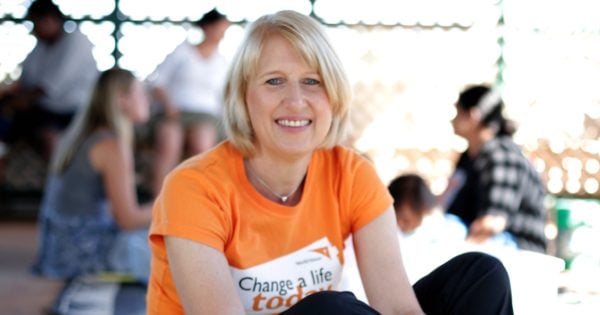We hear a lot of statistics about poverty. We hear that more than 767 million people live on less than US$1.90 a day. We hear that over half of the world’s extreme poor are under 18, that more than 800 million don’t have enough food.
But there’s a different statistic World Vision Australia’s new CEO Claire Rogers wants people to hear: In the last two decades, the number of children aged under five dying around the world each and every day has halved from 30,000.
That’s the statistic, the Melbourne mother of two argues, that should make people realise they are not impotent, not insignificant in the fight against global poverty.
“It’s still absolutely terrible that there are 15,000 dying daily, but it demonstrates that in relatively short periods of time you can make real change happen,” she told Mamamia.

